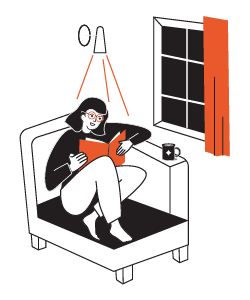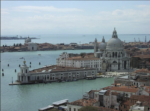Kapwani Kiwanga – Mediated Measures
 (480x319).jpg)
In chiusura della stagione espositiva 2014-2015, Viafarini è lieta di presentare la prima mostra monografica dedicata in Italia all’artista canadese Kapwani Kiwanga (1978, Hamilton, Canada. Vive e lavora a Parigi, Francia).
Comunicato stampa
Articolata in un regime ibrido d’esplorazione tra scienze sociali e pratica artistica, la ricerca di Kiwanga s’incarna di preferenza in territori culturali misti, dove domini di conoscenza a priori distinti riescono a incrociarsi. Grazie a sistemi e protocolli, che agiscono come prismi attraverso i quali osservare istanze culturali, Kiwanga mette alla prova la capacità di quest’ultime a mutare e a modificarsi nell'incontro con altre.
La formazione teorica di Kiwanga nel campo dell’antropologia e delle religioni comparate imprime ai suoi formati di ricerca una tensione particolare in cui la gestualità artistica si genera grazie all’incrocio di temporalità differenti, alla coesistenza dell'immersione nel passato e della proiezione nel futuro, alla de-gerarchizzazione delle fonti del sapere e all'invenzione di narrazioni e finzioni speculative. La coincidenza di registri eterogenei - dalla ricerca accademica alla cultura popolare - è una metodologia che l'artista utilizza con l'obiettivo di liberare la “produzione di conoscenza” da pregiudizi di valore, dissolvendo la separazione rigida tra le discipline e i diversi registri del sapere.
Film, installazioni e performance esplorano in modalità complementari la relazione tra il credere ed il sapere razionale cercando di immaginare possibilità diverse di rendere presente gli aspetti invisibili e intangibili del magico e del soprannaturale. Tramite il ricorso ai modi di rappresentazione tipici del documentario e a diverse fonti "materiali" (come gli archivi e documenti fotografici) oltre che a testimonianze scientifiche quanto soggettive, Kiwanga costruisce una complessa pratica artistica densa d’immaginari provenienti dall’afrofuturismo, dalle lotte anti-coloniali e dalla loro memoria, da sistemi di credenze religiose e dalla cultura vernacolare.
Il cuore del progetto milanese di Kapwani Kiwanga è l’assunzione dell’aptico - il toccare, lo sfiorare, il palpare - come modalità minima di relazione con un contesto urbano: il tessuto milanese, frangia estrema della dorsale economica definita Blue Banana e prototipo di quel corridoio europeo tra Manchester e Genova punteggiato da anonime megalopoli, viene misurato utilizzando il corpo come struttura di mediazione.
La strategia di lettura dell’anonimità urbana grazie all’estrema soggettività del corpo prende le mosse da un lavoro performativo ed etnografico sull’ambiente, che assume i candidi guanti da art handler come dispositivo di registrazione e collezione del contesto. A partire da una ricerca sulla manipolazione degli “oggetti etnici” trattati con i pesticidi nei musei etnografici europei, il guanto - superficie e barriera tra il corpo e l’oggetto - circola infatti nella produzione di Kiwanga, come analogia della dinamica tra fascinazione e rigetto culturale.
Nel progetto presentato a Viafarini, il guanto ritorna nel suo uso inverso, come occasione di sporcarsi e lasciarsi corrompere e contaminare. Lasciando spazio alla narratività intrinseca della materia, Kiwanga corregge l’autorità implicita nella narrazione storica e urbanistica, per concentrarsi, in un corpus di lavori installativi e in un wall drawing, su quegli strati degli oggetti d’uso comune che appaiono come “fuggenti”, i flussi e le transizioni, dove si può testare però una chiara incrostazione della provenienza sociale e politica di colui che li impiega.
Si ringraziano Sofia Bersanelli e Alice Bachmann per l'assistenza all'artista.
Kapwani Kiwanga (1978, Hamilton, Canada. Vive e lavora a Parigi, Francia) ha studiato Antropologia e Religioni Comparate alla McGill University (Canada). Ha successivamente seguito il programma post-diploma “La Seine” a l’Ecole National Supérieure des Beaux-Arts di Parigi (Francia) per poi completare la sua formazione presso Le Fresnoy – Studio National des Arts Contemporais, Tourcoing (Francia).
Kapwani Kiwanga è stata artista in residenza presso MU Foundation, Eindhoven (Olanda) e presso Le Manège, Dakar (Senegal); è stata nominata due volte ai BAFTA ed ha esposto internazionalmente presso: Centre Pompidou, Parigi (Francia); Glasgow Centre of Contemporary Art, Glasgow (Scozia); Paris Photo, Parigi (Francia); Bienal Internacional de Arte Contemporáneo, Almería (Spagna); Art Catalyst, London (UK), Kassel Documentary Film Festival, Kassel (Germania), Kaleidoscope Arena, Rome (Italia), Maraya Art Centre, Sharjah (U.A.E).
Tra i recenti progetti espositivi: WIELS – Centre d’Art Contemporain, Bruxelles (Belgio); Bétonsalon, Parigi (Francia); South London Gallery, Londra (UK); Jeu de Paume, Parigi (Francia); Berlin Ethnographic Museum, Berlino (Germania), The Swedish Contemporary Art Foundation, Stoccolma (Svezia); Galerie Marian Goodman, Parigi (Francia); Fondation Ricard, Parigi (Francia), Salt, Istanbul (Turchia), Irish Museum of Modern Art, Dublino (Irlanda), Tiwani Contemporary, Londra (UK), Tanja Wagner, Berlino (Germania).
Kapwani Kiwanga è rappesentata da Galerie Tanja Wagner (Berlin) e da Galerie Jêrome Poggi (Paris)
Kapwani Kiwanga
Mediated Measures
curated by Simone Frangi
Opening 18th June 2015, h. 7 p.m.
As the closing event of 2014-2015 program, Viafarini is pleased to present the first monographic show dedicated in Italy to the Canadian artist Kapwani Kiwanga (b. 1978 in Hamilton, Canada. Lives and works in Paris, France).
Articulated as a hybrid regime of exploration in between social sciences and artistic practice, the research of Kiwanga predominantly embodies in mixed cultural territories, where previously separated domains of knowledge succeed in crossing each other. Thanks to systems and protocols which operate as prisms through which cultural instances can be observed, Kiwanga tests their ability to mutate and to modify themselves in the frame of the mutual meeting.
Kiwanga’s theoretical training in the field of anthropology and comparative religions transmits to her research formats a particular tension in which artistic gestures generate thanks to the intersection of different temporalities, to the crossing of the immersion in the past and the projection in the future, to the de-hierarchisation of knowledge sources, to the invention of narratives and speculative fictions. The coincidence of heterogeneous registers – from academic research to popular culture – is the methodology that the artist employs in order to liberate the “knowledge production” from ambivalent prejudices around values, blurring the rigid separation between disciplines and knowledge registers.
Films, installations and performances explore in alternate modalities the relationship between belief and rational knowledge trying to image diverse possibilities for materializing the invisible and intangible aspects of the magic and the supernatural. Drawing upon documentary modes of representation, material sources such as archives and photographic documents, scientific but also subjective proofs, Kiwanga structures a complex artistic practice full of imaginaries coming from Afrofuturism, colonial struggles and their memories, systems of religious faiths and vernacular culture.
The core of Kapwani Kiwanga’s Milanese project is the assumption of the haptic – touching, brushing against, squeezing – as minim procedure of relation with the urban contest: the fabric of the city of Milan – taken as the extreme edge of that economical hogback called Blue Banana and equally as the prototype of that European hallway from Manchester to Genoa - is measured using the body as a structure of mediation.
This strategy, employed for reading the anonymity of the urbanity through the intimate subjectivity of the body, proceeds from a performative and ethnographic work on the environment assuming art handler white gloves as a device for recording and collecting the context. Hailing from a previous research on the manipulation of pesticide-treated “ethnical objects” in ethnographic European museum, the figure of the glove – surface and barrier between the body and the object – circulates in Kiwanga’s production as an analogy of the oscillation between fascination and cultural rejection.
In the mist of the project at Viafarini, the glove recurs in its inverted signification, namely as an occasion of blemishing, spoiling and contaminate “purity”. Opening up to the intrinsic narrativity of materiality, Kiwanga amends the implicit authority of historical and urbanistic narratives with the aim of focusing through a set of installation works and a wall drawing on these “fugitive” layers of every day objects: fluxes, transient states and transitions where one can eventually detect evidences of the social and political belonging of the users.
Thanks to Sofia Bersanelli and Alice Bachmann for artist assistance.
Kapwani Kiwanga (b. 1978, Hamilton, Canada. Lives and works in Paris, France) studied Anthropology and Comparative Religions at McGill University (Canada). She attendes the postgraduate program “La Seine” at Ecole National Supérieure des Beaux-Arts de Paris (France) and completed her training at Le Fresnoy – Studio National des Arts Contemporais, Tourcoing (Francia).
Kapwani Kiwanga was artist in residence at MU Foundation, Eindhoven (Netherlands) and at Le Manège, Dakar (Senegal); she was nominated twice at BAFTAs and exhibited internationnally: Centre Pompidou, Paris (France); Glasgow Centre of Contemporary Art, Glasgow (Scotland); Paris Photo, Paris (France); Bienal Internacional de Arte Contemporáneo, Almería (Spain); Art Catalyst, London (UK), Kassel Documentary Film Festival, Kassel (Germany), Kaleidoscope Arena, Rome (Italy), Maraya Art Centre, Sharjah (U.A.E).
Her recent and forthcoming exhibition project include: WIELS – Centre d’Art Contemporain, Brussels (Belgium); Bétonsalon, Paris (France); South London Gallery, London (UK); Jeu de Paume, Paris (France); Berlin Ethnographic Museum, Berlin (Germany), The Swedish Contemporary Art Foundation, Stockholm (Sweden); Gallery Marian Goodman, Paris (France); Fondation Ricard, Paris (France), Salt, Istanbul (Turkey), Irish Museum of Modern Art, Dublin (Ireland), Tiwani Contemporary, London (UK), Tanja Wagner, Berlin (Germany). Kapwani Kiwanga is represented by Galerie Tanja Wagner (Berlin) and Galerie Jêrome Poggi (Paris)



